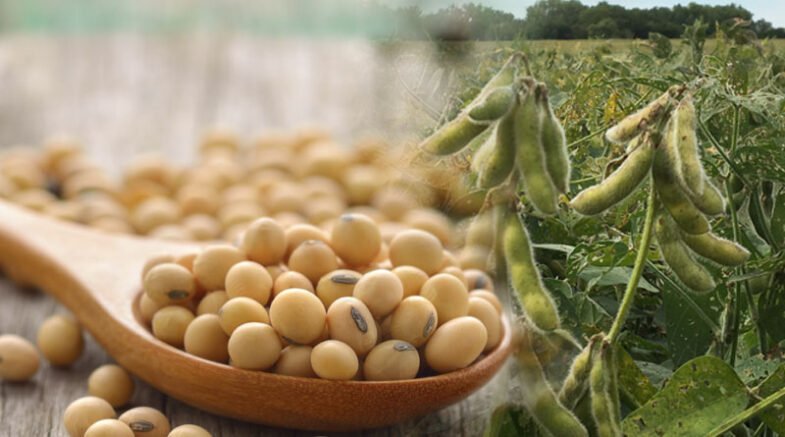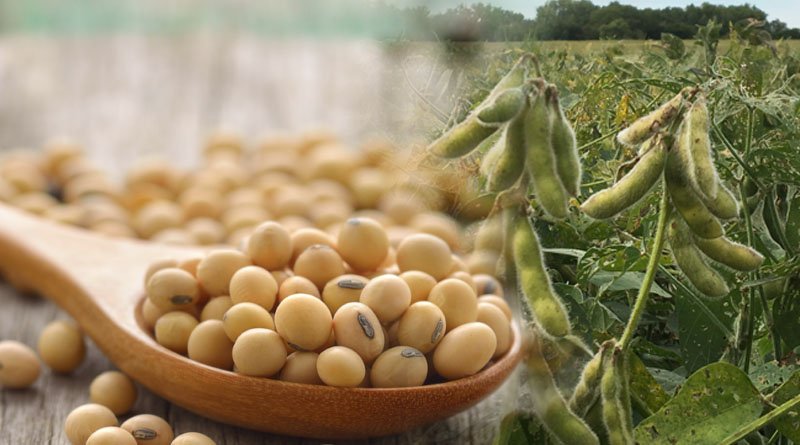Soybean is a crucial component of poultry feed because the poultry industry is playing a significant role in addressing the malnutrition problem according to UAF Vice Chancellor.

In order to promote soybean cultivation, which will help reduce import costs and increase farmers’ income, the University of Agriculture Faisalabad (UAF) will set up 100 demonstration or trial spots of approved and UAF developed new varieties of soybean on farmer’s fields in collaboration with industry.
In his remarks at the National Soybean Dialogues held at the Center for Advanced Studies in Agriculture and Food Security at UAF, UAF Vice Chancellor Prof. Dr. Iqrar Ahmad Khan made this claim.
He stated, “There is a misconception about genetically modified crops that needs to be eliminated. “The challenges of food insecurity will be addressed by both the GM and non-GM varieties ” He claimed that the nation imports $4 billion worth of edible oil.
He added that the soybean is a crucial component of poultry feed because the poultry industry is playing a significant role in addressing the malnutrition problem, making the promotion of soybean and other oil-seed crops essential to meet domestic needs.
He claimed that the nation of 220 million imports $10 billion worth of necessities every year. It is crucial to dispel irrational fears about technological advancements that are environmentally, economically, and scientifically viable. Soybeans and other GM crops may be introduced under local law.
He added that there are obstacles that should be removed that are unfair. According to him, GM crops are being grown commercially in about 70 countries on an estimated 190 million hectares of land. Almost every nation in the world trades GM products, such as GM soybeans.
Commercial hubs for GM crops include China, India, Australia, and major commodity-producing nations in South America and North America. He added that GM crops are not only more affordable and secure to grow but also better for the environment. He asserted that the soybean example is comparable to the cotton and corn ones.
The introduction of hybrid seed has resulted in a significant increase in corn yield, which can be further boosted and made more affordable by using GM hybrids that contain a wealth of beneficial genes, he added.
Dr. Muhammad Nawaz, the Director General (DG) of the Ayub Agricultural Research Institute (AARI), stated that practical agricultural research is being done to support food security. Such conversations, he continued, are essential to the sector’s growth.
According to UAF’s Dr. Zaheer Ahmad, the school is developing 5,000 lines of new soybean varieties. He claimed that the demonstration in farmer fields would be a stumbling block to the growth of the crop on a national scale.
The meeting’s or dialogue’s recommendations will be presented as a policy paper, according to research associate Dr. Nehal Ahmad Khan. He claimed that the dialogues were set up to give all parties involved a stage to discuss the problem.
According to Dr. Khalid Shouq, connections between academia and industry will result in noticeable change and advance the knowledge-based economy. The conversation was attended by the president of the Pakistan Poultry Association, Muhammad Ashraf, as well as representatives from the government, research organisations, and industry.
